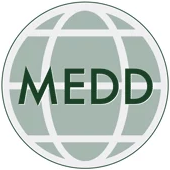Current treatments for Aortic Stenosis: Listen, Suspect and Refer. Presented by Dr Paul Klaassen
THIS TALK WAS PRESENTED LIVE DURING THE INAUGURAL MEDD LIVE 2020 VIRTUAL MEDICAL CONFERENCE
Current treatments for Aortic Stenosis: Listen, Suspect and Refer
Learning Objectives:
1. Discuss the aetiology and prognosis of Aortic Stenosis
2. Be Able to outline the diagnostic modalities and management options for patients with Aortic Stenosis
3. Describe the following strategies for treating aortic stenosis:
a. Medical Management
b. Surgical Aortic Valve Replacement
c. Transcatheter Aortic Valve Implantation.
4. Review contemporary clinical trial evidence supporting Transcatheter Aortic Valve Implantation.
Abstract:
Aortic Stenosis increases with ageing and is associated with certain cardiovascular risk factors. Primary care practitioners need to be aware of the symptom complex associated with this condition which progresses rapidly once the long latency period is complete. The condition remains underdiagnosed and undertreated. Cardiac auscultation is the first step in diagnosis. Doppler echocardiography is the primary technique recommended for diagnosis by The European Society of Cardiology and timely referral for this procedure is essential. A multidisciplinary Heart Team; is essential for optimising treatment decisions for patients with advanced aortic stenosis. This Heart Team can optimise risk stratification and ensure appropriate treatment for all patients. Transcutaneous Aortic Valve Implantation has made great strides in the improvement of the treatment of advanced aortic stenosis – initially in patients unsuitable for open heart surgery, but also more recently as an alternative to open heart surgery with significant clinical benefits as a result of being a less invasive procedure. The Partner trials have demonstrated this in a statistical fashion. The Sapien 3 study reported in The New England Journal of Medicine in May of 2019 suggested a 46% reduction in death, stroke or rehospitalisation in low-risk patients undergoing a balloon-expandable aortic valve implantation when compared with a surgically-implanted valve with a trend to improved all-cause mortality at 1 year also. Quality of life scores are also substantially improved at 1 month and there remains a statistically significant improvement at 12 months.


